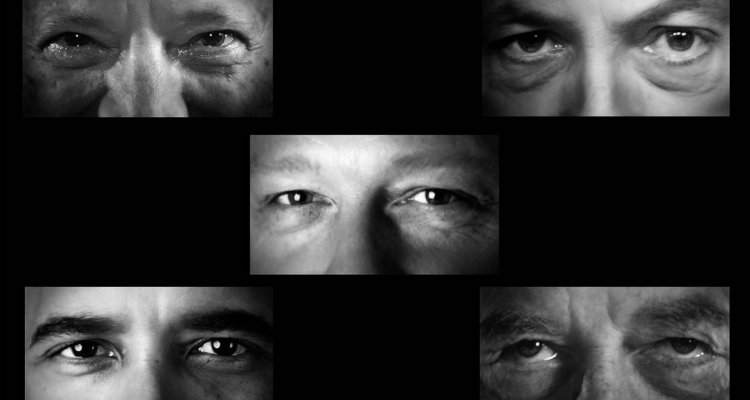A deep-dive exploration of maybe the most complex diplomatic issue in geopolitical history, “The Human Factor” never wants for nuance, detail, or exposition. This micro-analysis and patience is both a blessing and a curse, however, as the documentary’s blinders keep its focus honed to a razor-sharp edge while limiting it to just one component of a larger, interconnected web of international realpolitik. And while director Dror Moreh does a wonderful job contextualizing the various permutations of peace negotiations between Israel and its neighbors during the last decade of the 20th century, the limited scope of the story, as well as those telling it, hinder its reach.
READ MORE: 2019 Telluride Film Festival Preview: 9 Most Anticipated Movies
Focusing almost exclusively on the 1990s, and the efforts of Presidents George H.W. Bush and Bill Clinton’s State Departments, “The Human Factor” traces the evolution of peace negotiations between Israel and her neighbors in the region. Although Palestine is often thought of as the primary negotiating partner in these discussions, Syria has always been intimately involved as well, and leaders from all of these governments took a swing at negotiating a peace at some point during the decade. Moreh’s documentary takes a linear approach to each phase of this process, and the U.S. negotiators/diplomats discuss each chapter of the process year-to-year.
Different time periods throughout the 90s are connected to different leaders and political quagmires for the players involved. Administrations in Israel, Syria, and the U.S. changed, leading to new approaches and the loss of hard-won perspectives that months or even years of negotiating produced. Even Yasser Arafat of Palestine, who remained at the negotiating table throughout the decade, could not remain static in his position. Negotiations that began with one prime minister or leader often fell apart with the arrival of a new one, and countless re-workings of deals that ceded territory or redefined legal rights of the residents living in the disputed territories died quiet deaths with these administrations.
What begins to come into focus as “The Human Factor” moves out of its first hour is a desperate lack of continuity between negotiations, for when any group of people spent enough time together, things did seem to move in a productive direction. As one of the negotiators featured in the doc says near the beginning, what’s vital in any negotiation is the ability of both sides to see their counterpart not as some kind of adversary, but as a human being with needs and mandates, just like them. Once the different sides got to the negotiating table and saw the frustration and joy of the process as it played out, they began to empathize with a shared experience, and progress was made.
Conversely, when new administrations came in and tried to reshape the negotiations without any regard to the people and work that had been done before, things went to pieces. What the documentary emphasizes is the importance of these personal relationships throughout the process, and how this eponymous “human factor” served as the driving force behind any successful breakthroughs in negotiations. Indeed, the strengthening of relationships between Israeli Prime Minister Yitzhak Rabin, Syria’s Hafez al-Assad, and Arafat were the catalyst for these positive developments.
This is very much America’s story, though, and is being related in this doc via the negotiators Bush and Clinton put at the table for these talks. Members of the Israeli and Palestinian delegations don’t get much time to weigh in on events, nor do representatives from other allied nations, which might have added broader international context to the events covered. This doesn’t make the information that’s provided in “The Human Factor” any less relevant or topical, yet it does limit the scope of the effort.
Overall, this limited scope doesn’t make the investigation any less interesting, insightful, or applicable to the ongoing geopolitical situation in the Middle East, but it does give it an unavoidable slant. Moreh’s side-stepping of a larger discussion about Palestine and Israel’s history in the region pre-1990s also robs “The Human Factor” of much-needed context that might have better informed the positions Arafat, Rabin, Clinton, Assad, and others took throughout the process.
Still, it’s a damn fine investigation of a complex topic that offers up an admittedly one-sided picture of things in an easily digestible way. Moreh is careful in his presentation of the history, and never lets his documentary sympathize with any one side over the other, placing blame for the breakdown of negotiations over the years to all sides at one point or another (the U.S. included). Detailed, well-sourced from the American delegation, and sympathetic to all those involved, “The Human Factor” does most of what it sets out to do. Had it stretched itself a little more, though, it might have broken through to audiences in a way that all peace negotiations covered throughout the doc never did. [B]
Follow along with all our 2019 Telluride Film Festival coverage here.

